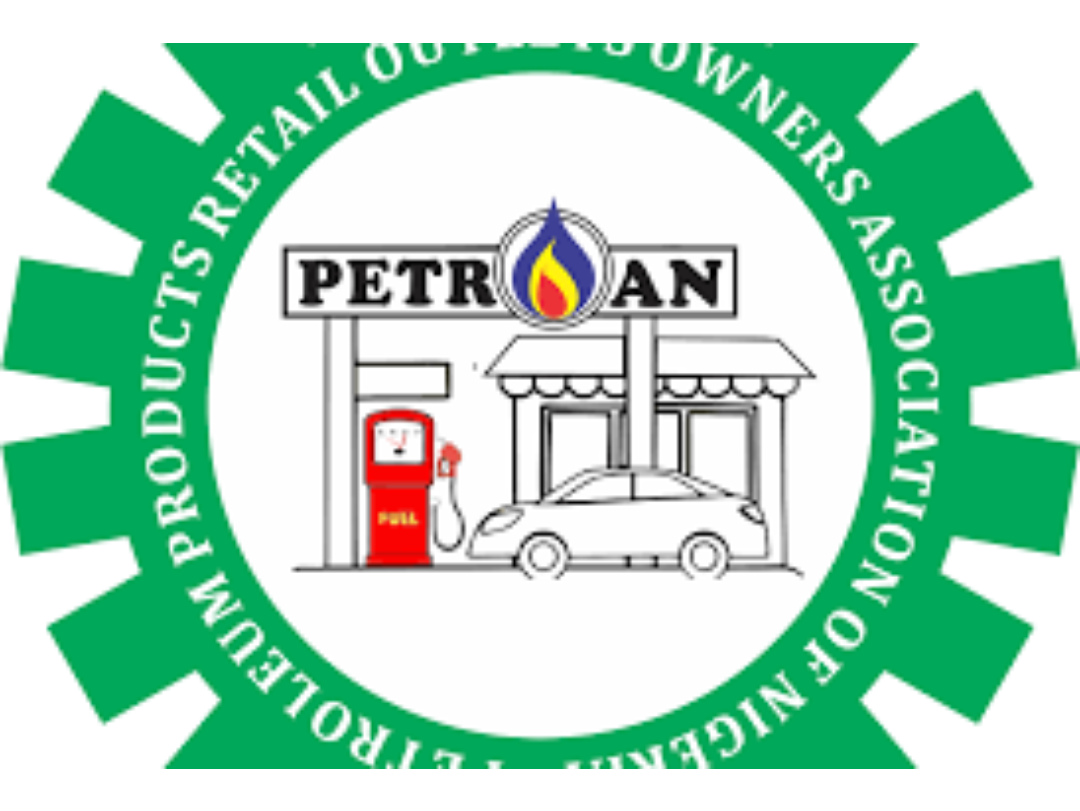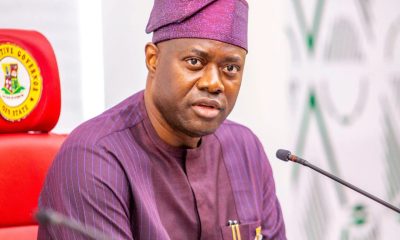Oil & Gas
Dangote Refinery’ll Transform Africa’s Economy -Stakeholders
The $12 billion Dangote refinery and petrochemicals complex has been tipped as having the potential to transform the African economy.
This was the verdict of oil and gas stakeholders at the just ended Ghana International Petroleum Conference (GhIPCON) in Accra, Ghana themed ‘Regional Collaboration; A Catalyst for Transformation’.
The conference was organised by the country’s Ministry of Energy and the National Petroleum Authority.
The stakeholders pointed out that with a wobbling Gross Domestic Product of $1.8 trillion, countries in Sub-Saharan Africa were on the cusp of economic transformation, with the imminent coming on-stream of Dangote refinery, particularly as the region is expected to be the direct beneficiary of the 650,000 barrels-per-day refinery, which will drastically reduce the countries’ fuel import majorly from Europe with expected impact on foreign exchange outflows.
The Sub-Saharan Africa presently boasts of over 132 trillion barrels of proven oil reserves, more than eight per cent of the world’s supply. Yet, it exports most of this oil to overseas refineries; which has for long denied the region of the huge opportunity for economic transformation.
The inability of African countries to locally refine its oil has taken a huge toll on their economies, with 48.5 per cent of the region’s population living below $1.25 per day and life expectancy hovering at 56 years.
Group Executive Director, Strategy, Capital Projects & Portfolio Development, Devakumar Edwin said at the conference that the refinery would soon come on stream to the benefit of the region whose economy had largely depended on imports from Europe and the west, and that the Dangote refinery will foster regional harmonisation in the distribution of cleaner petroleum products in West Africa.
Edwin, who was represented by the Technical Adviser to the President of Dangote Group on Refinery and Petrochemicals, Engr. Babajide Soyode, expressed belief that the completion of Dangote Refinery and other modular refineries projects across West Africa, would lead to the integration of the downstream industries, and stabilise the prices of petroleum products across the African sub-region.
He emphasised the need for other investors in West Africa to emulate the investment drive of Aliko Dangote in the downstream petroleum sector and make the sub-region an exporter of refined products.
Edwin also urged investors in Africa to take the bull by the horn by investing in the downstream sector.
“If Dangote can do it, any investor can do it. Dangote has not waited for government to regulate the downstream sector before starting the construction of the refinery. We don’t need foreign investors to turn around our downstream sector. African investors should be able to emulate Dangote and revive the African downstream petroleum industry,” he said.
He assured the stakeholders that the refinery is designed to process multiple grades of domestic and foreign crude, which can be converted into high-quality gasoline, diesel, kerosene, and aviation fuels that meet Euro V emissions specifications.
To bridge this gap and ensure cleaner fuel in the sub-region, Dangote Oil Refinery is being designed to accommodate multiple grades of domestic and foreign crude, and process them into high-quality petrol, diesel, kerosene, and aviation fuels that would meet Euro V emissions’ specifications, plus polypropylene. The facility, according to him, would be integrated with a petrochemical unit that will produce polypropylene and fertilisers.
Edwin said Nigeria would soon become the largest exporter of fertiliser in Africa as the Dangote Fertiliser Company is set to commence full production. According to him, pre-commissioning activities have started while construction work is still on-going at the Dangote Refinery site.
Speaking also, the Vice President of the Republic of Ghana, Dr. Mahamudu Bawumia, assured stakeholders in the petroleum downstream industry that the government would create an enabling environment for downstream business to thrive competitively, efficiently and with the highest of safety standards.
“Government, through the Ministry of Energy is in the process of ensuring institutional and regulatory re-alignment of the midstream gas subsector to bring clarity and a degree of certainty to players within that subsector.”
The GhIPCON is designed to actively bring to the fore the operating industry’s perspective and guidance on issues of governmental and regulatory policy, as well as best practices for the advancement of the industry across West Africa.
The conference witnessed a convergence of about 250 regulators and downstream industry stakeholders from across the West African sub-region and beyond.
On an earlier visit to the Dangote Refinery project, the President of Ghana, Nana Akufo-Addo, whose country has joined the league of oil producing nations, had said Africa could not wait any longer and that Ghana was specifically looking forward to the start of operation of the refinery.
Oil & Gas
PETROAN says Dangote Fuel Plan Threatens Downstream

Petroleum Products Retail Outlets Owners Association of Nigeria (PETROAN) on Monday raised alarm over the plan by Dangote Refinery to start direct nationwide distribution of petrol and diesel.
In a statement issued on Monday, PETROAN spokesperson, Mr Joseph Obele, said the move by Dangote could have consequences on the country’s downstream sector,
According to him, such consequences include widespread job losses and the shutdown of small businesses.
On June 15, Dangote Refinery disclosed its plan to distribute petrol and diesel directly to consumers across Nigeria.
Reacting to this development, PETROAN National President, Dr Billy Gillis-Harry, warned that such strategy could create a monopolistic market structure, stifling competition and threatening thousands of livelihoods in the sector.
“With a production capacity of 650,000 barrels per day, Dangote Refinery should be positioning itself to compete with global refiners rather than engaging in direct distribution within Nigeria’s downstream sector,” Gillis-Harry said.
He stated that this move undermines the survival of independent marketers, truck owners, filling station operators, and modular refinery operators who rely on the existing supply chain structure.
Gillis-Harry noted that Dangote’s dominance could lead to higher fuel prices due to reduced competition and business closures across the fuel retail landscape.
The president said that the situation could also lead to massive job losses among truck drivers, petroleum product suppliers, and station operators
He cautioned that the introduction of 4,000 new Compressed Natural Gas (CNG)-powered tankers by Dangote, which might lower transportation costs, could pose a threat to the jobs of traditional tanker drivers and owners.
“Filling station operators, truck owners, telecom diesel suppliers, and modular refineries are all at risk.
“Dangote’s approach could trigger a pricing penetration strategy aimed at capturing market share and forcing competitors out of the market,” Gillis-Harry added
The PETROAN boss said that Dangote’s market influence might allow for price setting that could disadvantage consumers, noting similar patterns in other industries where the conglomerate operates.
Gillis-Harry, therefore, urged the Executive Director of the Nigerian Midstream and Downstream Petroleum Regulatory Authority (NMDPRA) and the Minister of State for Petroleum Resources to urgently introduce price control mechanisms and enforce fair competition policies.
“Competition must be protected and encouraged to safeguard consumers, preserve jobs, and maintain a healthy petroleum distribution ecosystem,” he stressed. (NAN)
Oil & Gas
NNPC Ltd. Records N5.8bn revenue, N748bn PAT in April

The Nigerian National Petroleum Company Limited (NNPC Ltd.) has announced a revenue of N5.89 billion and a Profit After Tax (PAT) of N748 billion for the month of April.
The NNPC Ltd. disclosed this in its Monthly Report Summary for April, released on Thursday.
The report highlights key statistics, including crude oil and condensate production, natural gas output, revenue, profit after tax and strategic initiatives during the period.
The report said that NNPC Ltd made statutory payments of N4.
22 billion between January and March.According to the report, crude oil and gas figures are provisional and reflect only NNPC Limited’s data.
It said that It excluded volumes of independent operators reported by the Nigerian Upstream Petroleum Regulatory Commission (NUPRC).
“Crude oil and condensate production averaged 1.606 million barrels per day (bpd) in April, while natural gas production was 7.354 million standard cubic feet daily.
“Petrol availability at the NNPC Ltd. retail stations recorded 54 per cent during the month under review, while upstream pipeline reliability was 97 per cent,” it said.
On its strategic efforts, it said that the company was collaborating with Venture Partners to accelerate Sustainable Production Enhancement.
It said that it completed the implementation of relevant presidential directives and Executive Orders for its upstream operations.
The report listed some Technical Interventions on Ajaokuta-Kaduna-Kano (AKK) pipeline and the Obiafu-Obrikom-Oben (OB3) gas pipelin to resolve challenges of River Niger crossings.
It said that the OB3 gas pipeline project was 95 per cent completed in the month, while the AKK pipeline was 70 per cent completed.
The report said that Turnaround Maintenance (TAM) was completed in several Oil Mining Leases (OML), including OML 18, OML 58, OML 118, and OML 133.
On Refineries Status, it said that the Port Harcourt Refinery Company (PHRC), as well as the Warri and Kaduna refineries were currently under review.
According to the report, all financial figures are provisional and unaudited, and all operational and financial data are for April unless indicated otherwise. (NAN)
Oil & Gas
NNPC Ltd. Disclaims Fake Financial Scheme

The Nigerian National Petroleum Company Limited (NNPC Ltd.) has disowned a fake AI-generated video circulating on social media featuring a cloned voice of the Group CEO, Mr Bayo Ojulari, promoting a fictitious poverty alleviation scheme.
The Chief Corporate Communications Officer, NNPC Ltd.
, Olufemi Soneye in a statement on Thursday clarified that the company had no such investment initiative.Soneye urged the public to disregard the video, originally shared by an account named Mensageiro de Cristo on Facebook.
“NNPC Ltd. has warned the perpetrators to cease their fraudulent actions or face legal consequences,” he said. (NAN)

























